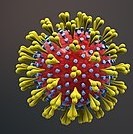Also in today's EMEA regional roundup: the "upside" of the new coronavirus; Huawei survives UK vote; Rob Shuter steps down at MTN.

Also in today's EMEA regional roundup: the "upside" of the new coronavirus; Huawei survives UK vote; Rob Shuter steps down at MTN.
Telefónica has committed to a number of measures in response to the ongoing coronavirus crisis, as its home turf of Spain reaches (at the time of writing) 35 deaths from the virus, now officially labeled COVID-19. The measures include: promoting remote working for all employees in Spain, placing special emphasis on those staff members with school-age children and on vulnerable groups; increasing the data allowance for its Fusion and Movistar customers; beefing up its online learning platforms; and making its services available to public administration and healthcare organizations caught up in the COVID-19 crisis.
In related matters, William Beavington, a telecom specialist at analyst firm Jefferies International, has issued a note saying that for European telcos coronavirus "could even spell upside in areas such as churn, working capital, capex, cost of debt," making the telecom sector "less vulnerable" than it has been generally in recent years.
Huawei shall go to the UK 5G ball: Despite 38 members of the ruling Conservative Party voting against the wishes of Prime Minister Boris Johnson, the UK government saw off the attempted rebellion on Tuesday over whether Huawei should be allowed to play any part in the UK's 5G networks. As the BBC reports, the government's comfortable majority meant that the attempt to cut the Chinese vendor out of the 5G picture was defeated by 24 votes. (See Eurobites: UK government rebels prepare to detonate H(uawei)-bomb.)
Rob Shuter is to step down as CEO and group president of South African operator MTN in March 2021. "Four years at MTN is like eight years anywhere else," Shuter quipped during his results presentation in Johannesburg on Wednesday. For more details, see this story on our sister site, Connecting Africa.
The Irish Aviation Authority's "next-generation" air traffic control network at its new West Ireland disaster recovery center is up, up and away, thanks in part to Nokia's IP/MPLS networking products and related services. A number of live trials have been carried out across a number of airspace sectors in the North Atlantic region, delivering critical voice and radar services to controllers over the new Nokia IP/MPLS platform.
Go-ahead Finnish operator Elisa says it is on course to achieve "carbon neutrality" in 2020. Its progress, Elisa says, is down to a combination of energy-efficiency measures and the use of certified carbon offset credits.
Also on the energy-efficiency trail is Ericsson, which has published a report highlighting a "unique network-level approach" that allows for an exponential growth of data traffic without increasing energy consumption. In the report, titled Breaking the energy curve, Ericsson points to the savings that can be made by preparing the network with up-to-date technology offerings, activating energy-saving software, building 5G "with precision" and operating site infrastructure intelligently.
Orange is to launch its smartphone-based "mobile wallet" service, Orange Money, in Morocco. Morocco is the eighteenth country in Orange's Africa and Middle East region to adopt the service.
UK incumbent operator BT is launching a new gigabit home broadband service later this month as part of a wider range of "Full Fibre" plans. The service will, in time, be available to more than 2 million households, giving BT, claims the operator, "the biggest Full Fibre network reach of any provider in the UK."
— Paul Rainford, Assistant Editor, Europe, Light Reading
Read more about:
EuropeAbout the Author(s)
You May Also Like











